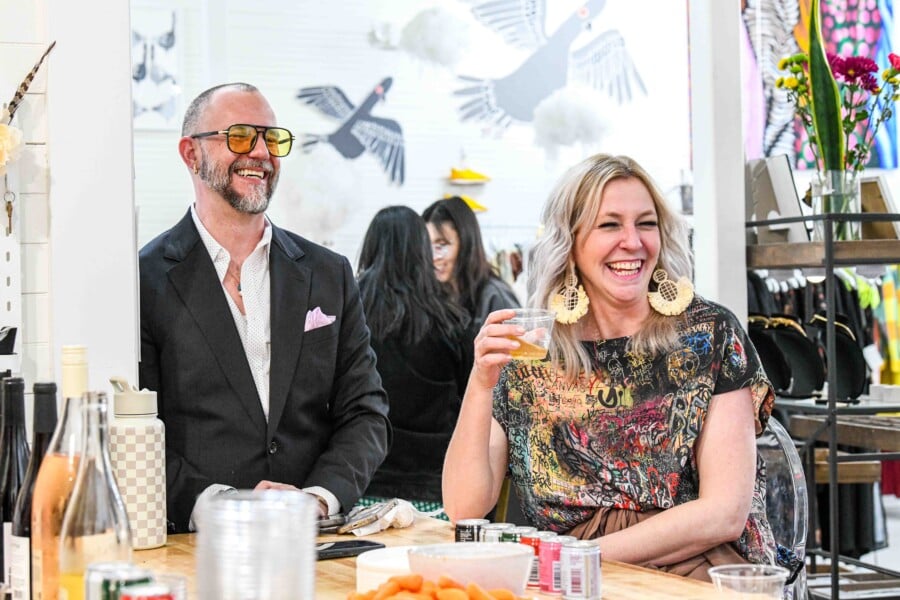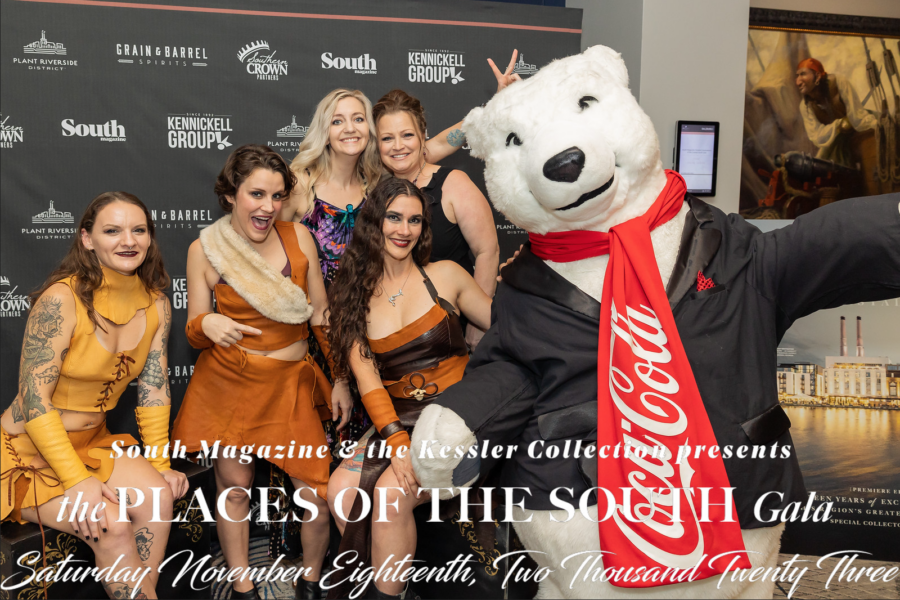Forced Out
A promising baseball career, cut short in its prime. A young man seeking his path in life, imprisoned by an apathetic system. A life, forever altered. But where most would see tragedy, Jimmie Gardner saw a prologue to a life of inspiring others.

Photos / Daniel Shippey
We like to think that the wheels of justice run over level terrain these days. We recognize the sins of the past, tragic inequities that denied the liberties of millions. We mourn for those whose lives were lost due to an unfair system. And we promise to move forward with equal treatment under the law.
We like to think we’ve come pretty far. Then a story comes along showing us how much more work there is to do to live up to our nation’s promise of life, liberty and the pursuit of happiness.
“I value every positive thing. Everything I went through was an opportunity for growth. If you think negative, stay negative. If you think positive, you stay positive,” he said. “I just ask God to give me a microphone.”
Gardner found himself on the wrong side of the often lopsided dispensation of justice back in 1987. As a celebrated young baseball star, drafted by the Cubs in 1984 and working his way up through the farm system, he was living in West Virginia where he played for the Charleston Wheelers. In tracking down suspects for a pair of sexual assaults, police swept somewhere around 150 men into custody. All any of them had in common was their skin color.

The road to success for Jimmie Gardner was cut short when he was falsely accused of a crime that ultimately landed him in prison for 27 years.

“It was like a dragnet,” said Gardner. “There were a lot of guys taken off the streets, questioned, photographed and interrogated. They got every black guy on the baseball team.”
After being detained and questioned, Gardner was released. For a time. But two years later, as he was living in Florida having forgotten all about the incident in West Virginia, the long arm of the law reached out again.
“When I saw cops from West Virginia with a cop from Florida wanting to ask me questions, it wasn’t a good feeling,” he said. “I had it out with that cop – nothing had changed, I still hadn’t done the crime. They said they just wanted to get hair, blood and saliva, but as soon as I gave that I was arrested.”
Relying on a public defender who Gardner says he barely saw before the trial, he was railroaded on flimsy evidence and sentenced to jail in what he calls a “trial by ambush.”
The 1990 trial of Jimmie Gardner was a textbook miscarriage of justice. Not only did the prosecution introduce evidence against Gardner that they’d been withholding from the defense for nearly eight months, one of the most compelling witnesses against him was a forensic examiner named Fred Zain.

Photos / Daniel Shippey
It would eventually come to light that Zain had forged, falsified and otherwise fraudulently prepared mountains of forensic evidence that put away hundreds of young men. But in February of 1990, his “expertise” was all that prosecutors needed to secure Gardner’s conviction. When the trial ended, he’d been sentenced to 110 years.
“There were 136 cases that were reviewed on Fred Zain… Most should have been released, and a lot of them were innocent. This guy testified falsely,” said Gardner. “There are so many people being wrongfully convicted, murdered, throughout the world. I don’t believe I’m special.”
He went in a confused young man, one who had come from a good background in a small Georgia town, but still carried the arrogance of youth. To hear him say it, as reprehensible as it was, his arrest was a natural byproduct of a life spent living on the wrong path.
“I had to make a conscious change. I didn’t want to hurt people,” he said. “It’s about letting go of ego and pride. I know who I am.”
That conscious change didn’t come right away. A few years in, Gardner got into what he calls a “swordfight” with another prisoner. He doesn’t like to talk about specifics, but both men were armed with shanks. Afterward, Gardner was separated from the general prison population and placed in a filthy windowless cell in Moundsville Penitentiary. “I spent two years in solitary confinement. Every day it was 23 hours in solitary and one hour out to shower. It gave me an opportunity to really understand who I am. That lockup period, I started reading all types of motivational books.”

Jimmie Gardner’s faith was the one thing that kept him going during his quest to prove his innocence.
His growth didn’t end when his stint in solitary did. He took every class the prison offered and read nearly every book in the library. By the time he was released, he had certifications that ran the gamut from cooking to computer programming.
All that education served him well in 1998 when the truth came out about Fred Zain’s lies. The wheels of justice moved slowly churning through the backlog of people put away by his false witness, and Gardner kept his name on the list by filing petition after petition for years.
Finally, his hard work was rewarded. In 2016, Gardner found out through a phone call that he’d been exonerated. No court appearance, no trial, no public apologies for thirty years of unjust imprisonment, just a phone call.
“I had a butterfly land on my hand before I got the phone call,” he said. “After I found out, that butterfly flew over the barbed wire, and I knew that was me flying off. That was on March 15, my mom’s birthday. That Sunday I called my mom and told her what had happened. My mom said, ‘I went into closet and prayed. Jesus said you’re coming home.’”

When he walked out of prison, he was a much smarter man as a 50-year-old former inmate than he’d been as a kid. And he was just getting started.
“I stayed on my path and was able to help and mentor others,” he said.
One of the strongest forces keeping him on this path is his wife, Leslie Abrams Gardner. A U.S. District Court judge for the Middle District of Georgia, and sister to activist Stacey Abrams, Leslie has been Jimmie’s rock as he has worked to save others from the same fate that befell him. The couple first met at a Georgia Association of Black Women Attorneys event, where at first Leslie was reluctant to tell Jimmie what she did for a living.
“I said, ‘Why would I not like you? I love judges.’ What one person does is not a reflection of the group. That judge in my trial acted the way he acted and he has to be accountable for that,” he said. “My wife’s my best friend. It’s just a beautiful union. I’ve been blessed.”

“There were times I literally had to physically and mentally fight for my life in prison. In the winter of 1992, I was put in solitary confinement where all of the windows in my cell were busted out. Snow, ice, and freezing winds entered the entire lock-up. I recall using my shank to break the thick sheet of ice in my toilet. I yelled and screamed daily to generate heat, just to stay alive. Ultimately, I survived by the grace of God.“ – Jimmie C. Gardner
With the support of his wife, as well as his team —Amanda Simmons, Nadia Fisher, Stephanie Nichole, Sarah Edwards — Jimmie Gardner has turned nearly three decades of brutal struggle into a gift. It’s a gift he gives freely, one that offers the hope that one day the world will be as just as we all like to think it is.
“I do it for the people. It’s not about me. It’s about giving back,” he said. “Individuals need to understand who they are and believe in themselves.”
The Fight Continues
Jimmie Gardner was exonerated when the many crimes of a forensic examiner named Fred Zain came to light. Botched evidence in a separate case showed the depths of the largely untrained Zain’s incompetence, and the willingness of prosecutors to overlook his faults in favor of a speedy conviction. And despite this coming to light in 1988, Gardner wouldn’t see justice until 2016. In fact, he was one of the few lucky ones.“From 1988-2016, I was the sixth case (of Zain’s) that got relief,” he said. “Most never got hearings. They died in prison. I still fight for them.”
For more, visit jcgardnerspeaks.com.
To read this story in its entirety, subscribe now to the print edition for the full article or get instant access to our interactive digital edition.













